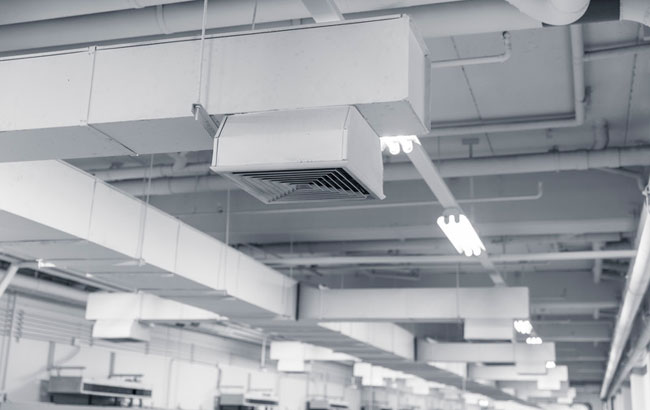The Role of HVAC System in Air Quality

Indoor air quality (IAQ) is a crucial but often overlooked aspect of our daily lives. Most of us spend a significant amount of time indoors, whether it's at home or in the workplace. Therefore, the quality of the air we breathe indoors can have a profound impact on our health and well-being. One of the essential contributors to maintaining good IAQ is the HVAC (Heating, Ventilation, and Air Conditioning) system.
Understanding the Importance of Indoor Air Quality
Before delving into the specifics of HVAC systems, it's essential to understand why air quality matters. IAQ refers to the condition of the air within buildings, including homes, offices, and other indoor environments. Some common contaminants found in indoor air include dust, pollen, mold, and volatile organic compounds (VOCs). Inadequate ventilation and subpar HVAC systems can exacerbate these issues.
How HVAC Systems Impact Air Quality
HVAC systems are not just about maintaining a comfortable temperature; they play a multifaceted role in enhancing IAQ.
1. Ventilation
Proper ventilation is the cornerstone of good IAQ. HVAC systems ensure that there is a continuous flow of fresh outdoor air into indoor spaces. This process helps dilute indoor pollutants and prevents the build up of harmful substances.
2. Filtration and Purification
Modern HVAC systems are equipped with air filters and purification mechanisms. These components are designed to capture and eliminate contaminants from the air, ensuring that the air you breathe is clean and safe. They target particles such as dust, pollen, bacteria, and viruses.
Common Contaminants in Air
Understanding the types of pollutants that can affect IAQ is essential for taking proactive steps to address them.
1. Dust and Allergens
Dust mites, pet dander, and pollen are common indoor allergens. HVAC filters can effectively trap these particles, reducing their presence in your living spaces and improving overall comfort.
2. Mold and Mildew
Excess moisture can lead to mold growth, which can release spores into the air. HVAC systems can help control indoor humidity levels, preventing mold issues and the associated health risks.
3. Volatile Organic Compounds (VOCs)
VOCs are chemicals emitted by various household products such as paints, cleaning agents, and air fresheners. High-quality HVAC systems incorporate air purifiers that can effectively remove VOCs from the air, reducing exposure.
Regular Maintenance: The Key to Clean Air
Maintaining the efficiency of your HVAC system is crucial for ensuring good IAQ.
1. Changing Air Filters
Regularly changing air filters is a simple yet effective way to keep your HVAC system running smoothly. Clogged filters hinder proper air circulation and can lead to the accumulation of contaminants in your home.
2. Duct Cleaning
Periodic duct cleaning helps remove dust, debris, and potential mold growth from your ductwork, ensuring that the air flowing through remains clean and uncontaminated.
Investing in High-Efficiency HVAC Systems
Efficiency and IAQ are not mutually exclusive; you can have both.
1. Energy Star Ratings
Look for HVAC systems with Energy Star ratings. These systems are not only energy-efficient but also contribute to better IAQ by operating effectively.
2. Smart Thermostats
Consider installing smart thermostats, which provide precise control over temperature and humidity levels. This technology enhances both comfort and IAQ.
The Role of HVAC in Commercial Spaces
Good IAQ is not limited to homes; it's equally crucial in commercial and industrial spaces.
Balancing Energy Efficiency and IAQ
It's possible to achieve a balance between energy efficiency and IAQ, benefiting both your wallet and your health.
Breathe Easier with a Healthy HVAC System
In conclusion, your HVAC system is not merely a climate control system; it's a critical component of maintaining a healthy indoor environment. By understanding its role in IAQ and implementing the tips provided in this article, you can enjoy a more comfortable and healthier living space.
FAQs About HVAC and IAQ
Q1. How often should I change my HVAC system's air filters?
Regularly changing air filters is recommended every 1 to 3 months, depending on the type of filter and your usage.
Q2. Can HVAC systems eliminate all indoor air contaminants?
While HVAC systems can significantly reduce contaminants, it's essential to combine them with other strategies like using low-VOC products and proper ventilation for comprehensive IAQ improvement.
Q3. What is the ideal indoor humidity level for IAQ?
The ideal indoor humidity level for optimal IAQ and comfort falls between 30% and 50%.
Q4. Can a smart thermostat make a noticeable difference in IAQ?
Yes, smart thermostats can contribute to better IAQ by helping maintain precise temperature and humidity levels, enhancing overall comfort and health.
In conclusion, achieving and maintaining good indoor air quality is essential for a healthy and comfortable living environment. Your HVAC system is a vital in this endeavour, and by following the tips outlined in this article, you can create a space where you and your loved ones can breathe easier and live healthier lives.



